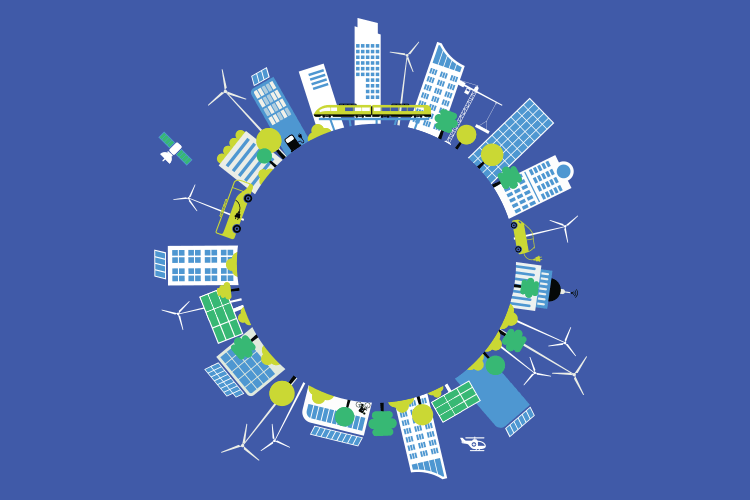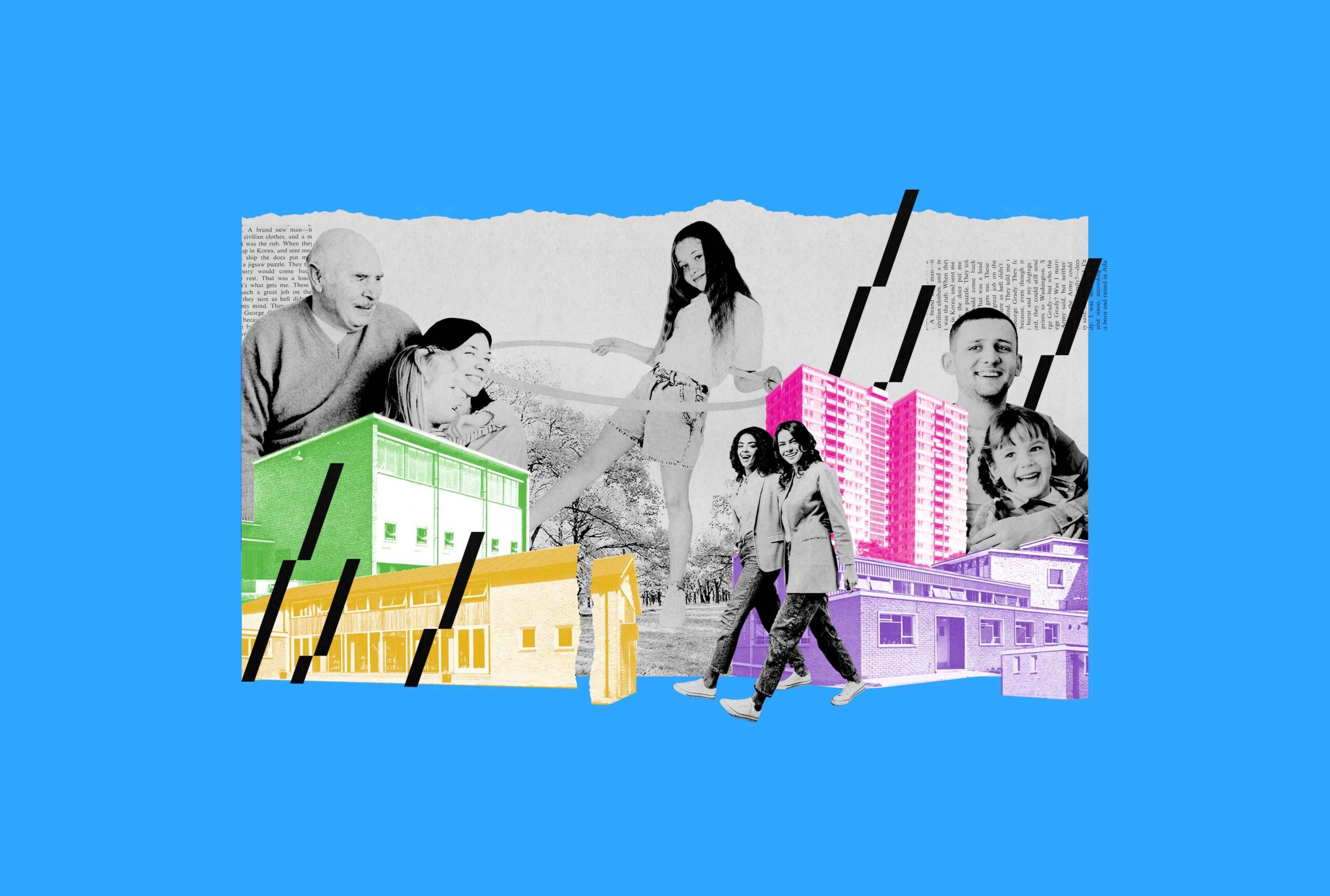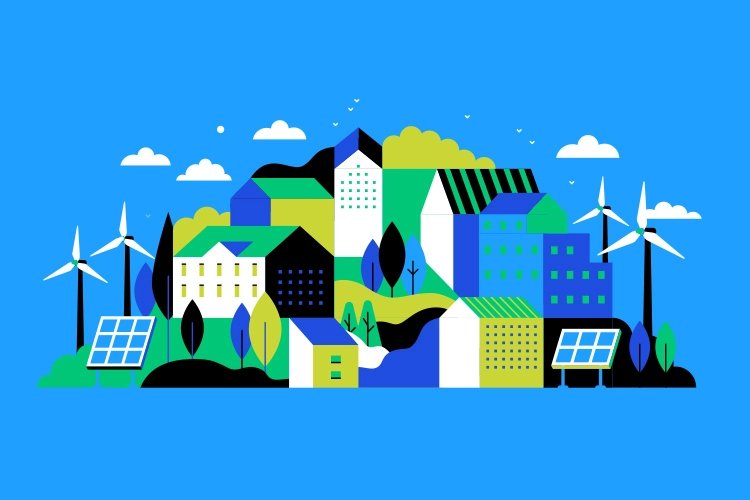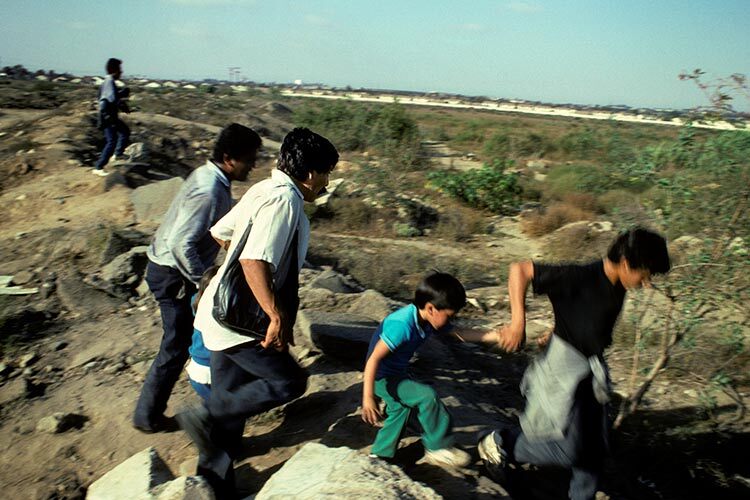Luis Fernández Carril, research professor at the Tec de Monterrey, explains that sustainability in universities is not only having spaces for education on environmental issues but also being a place to create projects, and initiatives and develop research and alliances, to promote a culture of sustainability.
Fernández Carril, who also participated with the United Nations Intergovernmental Panel on Climate Change (IPCC) in the 2022 report, adds that universities can become “living laboratories in the face of the climate crisis”.
Tec de Monterrey announced in 2021 the creation of its sustainability plan that includes its entire university ecosystem called Ruta Azul.
David Garza, rector and executive president of the Tec, says that when the strategic plan for 2025 was designed, “we saw it as very important to have an impact on society. We want, as an educational institution, to be an example for other institutions on sustainability issues”.
Since 2018, the IPCC issued a warning: to ensure a sustainable future, global warming must be limited to 34.7°F (1.5°C) by 2030.
Five years after the announcement, the challenge is now greater due to constant emissions, overexploitation of natural resources, and insufficient measures. Fortunately, some universities are taking action creating sustainability initiatives.
By September 2022, 1,125 educational institutions had joined the global United Nations campaign Race To Zero, which seeks to promote sustainability worldwide.
Some Mexican universities, such as the Universidad Iberoamericana, the Universidad de Guadalajara, and the Tecnológico de Monterrey, have also joined the campaign.
What is Ruta Azul?
This plan is based on six main axes: Culture, Mitigation, Adaptation, Education, Research, and Linkage.
The plan includes actions not only within Tec but also partnerships and projects that have an impact beyond the university’s facilities.
One of them is the E2 Off Grid Parking Building in Monterrey, a hydro-sustainable building that can capture and filter rainwater and generate water from the humidity of the environment, thus operating mostly disconnected from the city’s water grid.
They also created a sustainable event guide to avoid using PET bottles, which reduces emissions and the use of water needed during the production of these plastics.
This manual aims to help reduce the carbon footprint of events such as graduations, award ceremonies, and visits, among others.
They’ve also adopted sustainable electric systems such as solar panels, electric car charging stations, and the use of smart technologies to reduce electricity consumption on their campuses and institutions.
For example, TecSalud medical centers, the Zambrano Hellion Hospital, and the San Jose Hospital have operated entirely on renewable energy since 2022.
The Ruta Azul also includes education initiatives through training more than 1,000 teachers on climate change, as well as incorporating sustainability education programs in all professional careers at Tec.
“The mission is to educate committed leaders to forge a sustainable future. All graduates should know about climate change, the main challenges of sustainable development, and have the tools, vision, values, and knowledge to face it”, says Fernández.
Research: Living Sustainability Labs at Universities
Luis Fernández points out that Ruta Azul is based on the principle that universities can become living laboratories in critical issues such as the environmental crisis and sustainability.
This working mode motivates research and innovation in higher education to promote social change and is encouraged by entities such as the UNESCO International Institute for Higher Education in Latin America and the Caribbean.
During the Tec’s Educational Innovation Congress in 2023, Francisco Pedró, the institute’s director, noted: “We must educate people and prepare them for a changing world so they are committed to social causes, such as sustainability“.
Within the Research axis of Ruta Azul, Fernández states that the initiative aims to promote interdisciplinary exploration through the research groups of each of the Tec’s schools, as well as its various institutes.
This includes the launch of a research avenue for sustainable development within the Novus 2023 program.
This is an initiative of the Institute for the Future of Education (IFE) that recognizes the best research projects in educational innovation from the Sustainable Development Goals and supports them with funding and mentoring for their development.
Also, on some of Tec’s campuses, they have conducted research projects on water conservation and management, especially in areas with water stress such as Nuevo León or Sonora.
“This is a very relevant issue for us. Campuses can be a place to experiment and create concepts implemented later”, says Fernández.
The second year of Ruta Azul
On April 2023, the second annual report of Ruta Azul at Tec de Monterrey included the results of actions in each of the six axes of the plan in the past year.
The plan created in 2021 is currently under the leadership of Cynthia María Villarreal and Jaime Fernando Dorantes, however, it involves professors, collaborators, students, parents, and the general community.
“The question is, is it enough? The answer is no. If we want hope, we need to be more, do more, and achieve more,” said Inés Sáenz, Vice President of Inclusion, Social Impact, and Sustainability, during the event.
“We think we will be here for centuries, but if we want to achieve it, we must ensure sustainability for the future,” said David Garza Salazar, Rector and executive president of Tec.
(With information from CONECTA)















